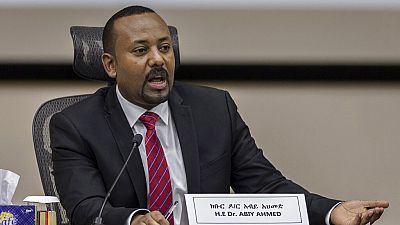Ethiopia
A rebel spokesman said on Monday that the Ethiopian government was responsible for crimes against humanity after UN experts accused Addis Ababa of war crimes.
"We have always ensured this," Getachew Reda, a spokesman for the Tigray People's Liberation Front (TPLF), told AFP.
According to a report to the UN Human Rights Council, war crimes and crimes against humanity are likely to have been committed in the conflict that has torn Ethiopia apart since late 2020.
The three-member Commission of Experts that drafted the report "has reasonable grounds to believe that, in several cases, the violations amount to war crimes and crimes against humanity".
Referring to "deep ethnic polarisation and hatred in Ethiopia", the experts believe that "this has created a worrying cycle of extreme violence to which retaliation responds, increasing the imminent risk of further and more serious atrocities".
The TPLF spokesperson agreed with "most" of the report's findings, without elaborating.
Commission Chairperson Kaari Betty Murungi described the humanitarian crisis in Tigray as "shocking in its dimensions and duration".
"The widespread denial and obstruction of access to basic services, food, health care and humanitarian assistance is having a devastating impact on the civilian population, and we have reasonable grounds to believe that this amounts to a crime against humanity," she said.
"We also have reasonable grounds to believe that the federal government is using starvation as a method of warfare," she added, calling on the government to "immediately restore basic services and ensure unhindered humanitarian access.
Murungi also called on the Tigrayan forces to "ensure that humanitarian agencies can operate without hindrance".














Go to video
WAFCON 2024/25: Road to the semi-finals begins
Go to video
U.S deportees put in solitary confinement in Eswatini: government spokesperson
Go to video
Togo holds first local elections since controversial power shift
Go to video
"No Substance": Burna Boy apologises for controversial statement about Afrobeats
01:09
Prince Harry visits Angola in repeat of Diana's iconic 1997 trip.
Go to video
Former Nigerian President to be buried today